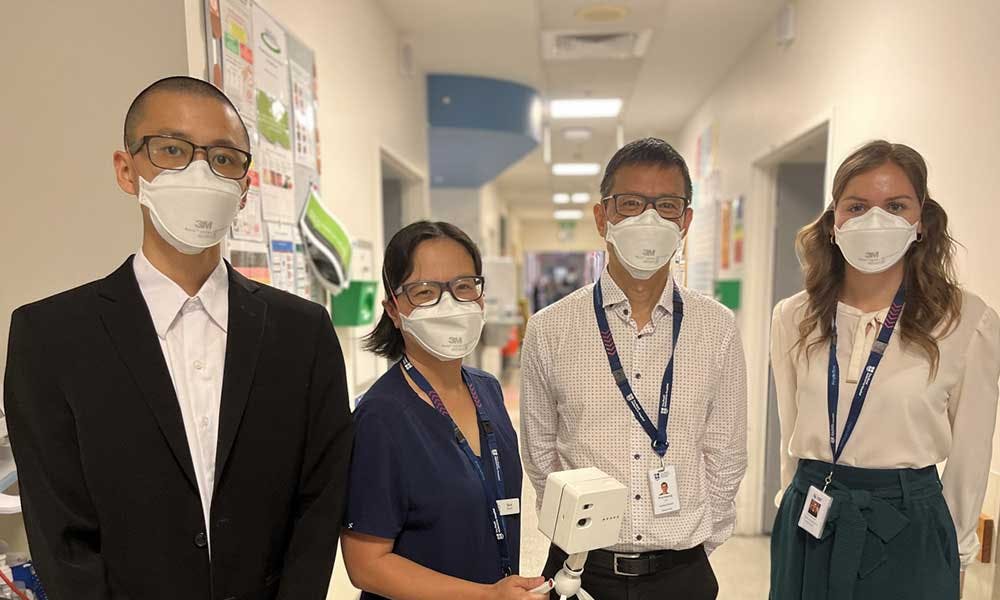A hand-held monitoring system trialled at the RMH could help streamline check-ins and allow patients to be assessed from the comfort of their own home.

The trial tested the use of a small, remote vital signs monitoring system in both ward and at-home settings, measuring its accuracy for things like heart rate against traditional methods.
Similar to a “Snow White mirror”, the device uses sensors to assess a person’s vital signs via multiple contactless cameras working in collaboration with a mini-computer.
Dr Seok Lim, Head of the RMH@home Acute service and the trial’s lead author said ensuring patients had access to safe, timely and high-quality care was paramount.
“This is the first time that a contactless sensor has been used for patients at home, and has enormous potential in helping us virtually assess, monitor and respond to patients in a timely fashion,” Dr Lim said.
One of the key benefits of the trial was the reduced burden on patients, who could monitor vitals such as heart rate, temperature and oxygen saturations themselves, including from the comfort of their home.
The infection transmission risk was also less for patients and clinicians.
Lead investigator Professor Wen-Kwang Lim said it was important to test such tools in different settings and with different cohorts.
“This project is among the first of its kind to utilise ambient sensors in measuring vital signs in hospitalised patient cohorts in both ward and home environments," Prof Lim said.
The pilot study was recently published in the journal Sensors and was a collaboration between the RMH, the University of Melbourne and the RMH Foundation.
Dr Lim said while promising, the next step would be to trial “wearable” devices, such as smart watches.


We provide a media service from 6am to 9pm each day. Journalists are welcome to contact our media adviser on-call via the RMH Switchboard on (03) 9342 7000.
During business hours, journalists can email mh-communications@mh.org.au. We do not respond to emails outside business hours.

